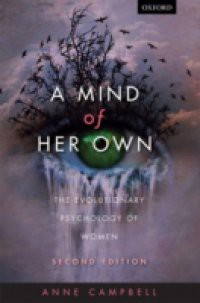When Darwin proposed that females shape evolution by being choosy in their choice of male suitors, his Victorian contemporaries were shocked that he accorded so much importance to women. But this early view of the female role was far from revolutionary: They were simply allowed to be passive 'quality controllers' of male genes. Recent years have shown that the inert 'coy female' is a myth. For a male, a high sex drive and a taste for variety may improve his fitness. But for a female, successful reproduction goes far beyond copulation. She bears the brunt of parental investment with each child represents years of commitment from pregnancy and breast-feeding to provisioning and guarding. For her genetic lineage to survive, she must do this better than her rivals. Each of us comes from a line of winning mothers. Womenare, after all, the first and default sex. It is women who bear children. A child born with a single X chromosome can survive, but not one with a single Y. In a population crash, a female-biased population will survive far better than a male-heavy one. In this book, Anne Campbell redresses the balance of evolutionary theory in favour of women. She examines how selection pressures have shaped the female mind over thousands of generations: Their emotions, friendship, competition, aggression and mate choice. She brings together data from neuroscience, endocrinology, anthropology, primatology as well as psychology to address fundamental questions about sex differences.... Why are women less aggressive than men? Were women designed for monogamyor promiscuity? What do women compete for? Why is conflict between males and females inevitable? What makes each woman unique? Have contraception and IVF subverted the process of natural selection?






 10 (1)
10 (1) 











